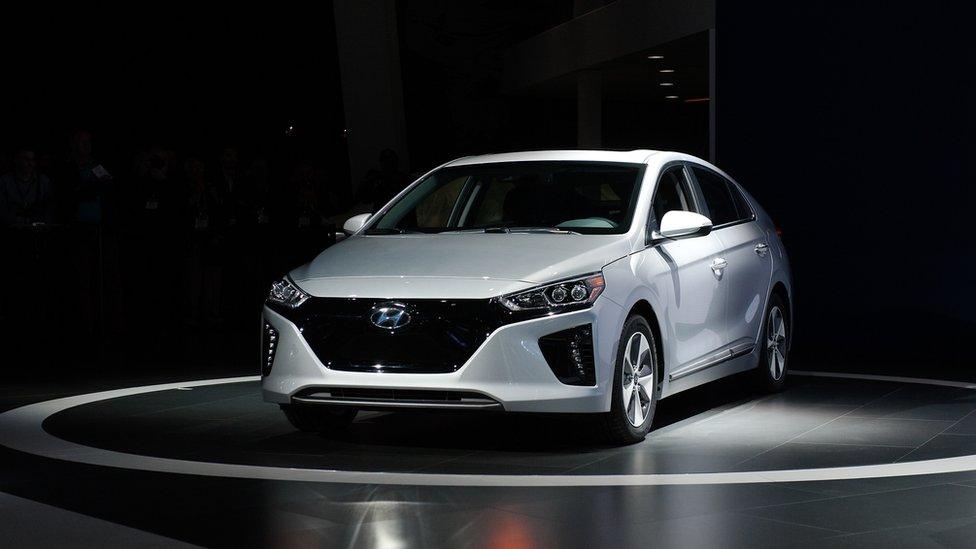Hyundai vows to produce longer-range electric car
- Published

Korean carmaker Hyundai is wading further into the electric vehicle market, promising a car that can go 500km (311 miles) on each charge.
Hyundai already has an electric model on the market, but its range lags behind its competitors' models.
Along with its affiliate Kia, Hyundai is planning 31 eco-friendly models by 2020.
The latest move comes amid increasing competition in the market for ecologically-friendly cars.
Hyundai's environmentally-conscious new additions will include three plug-in hybrid vehicles, eight battery-powered cars and two fuel-cell vehicles.
The company also has plans to develop its first dedicated facility for pure electric vehicles, which will allow it to produce a variety of cars with longer driving ranges.
Its current electric model, the Ioniq, has a range of 280km, less than GM's Bolt or Tesla's Model 3, which both have ranges in excess of 350km.
Automotive analyst Robin Zhu from Bernstein Research says Hyundai's new model would be competitive when it comes out after 2021, even though its high-end competitor Tesla will probably exceed its expected range by then.
"For econo-boxes that go from A to B, you need to be competitive, but as long as they offer the right product for the right value, the onus is not on Hyundai to do something groundbreaking," he said.
China leads the way
Hyundai's latest push into the electric market comes amid growing global competition for electric cars.
In addition to electric-only manufacturers such as Tesla and Faraday Future, major US, Japanese and European carmakers are now offering electric options.
According to the International Energy Agency, new registrations of electric cars hit a record in 2016, with more than 750,000 sales.
While electric cars have the highest market share in Norway, far more are sold in China.
China accounted for more than 40% of the electric cars sold last year, more than double the amount sold in the United States.
The consultancy McKinsey said Chinese manufacturers produced 43% of the 873,000 electric vehicles built worldwide in 2016.
Robin Zhu said the Chinese market is partly driven by generous government subsidies, and it's unlikely that Chinese manufacturers will continue to dominate over the long-term.
"Right now, VW's market share is almost 0%. But it's not going to be 0% when they pull up their socks and do it," he said.
- Published9 August 2017
- Published7 August 2017
- Published12 May 2017